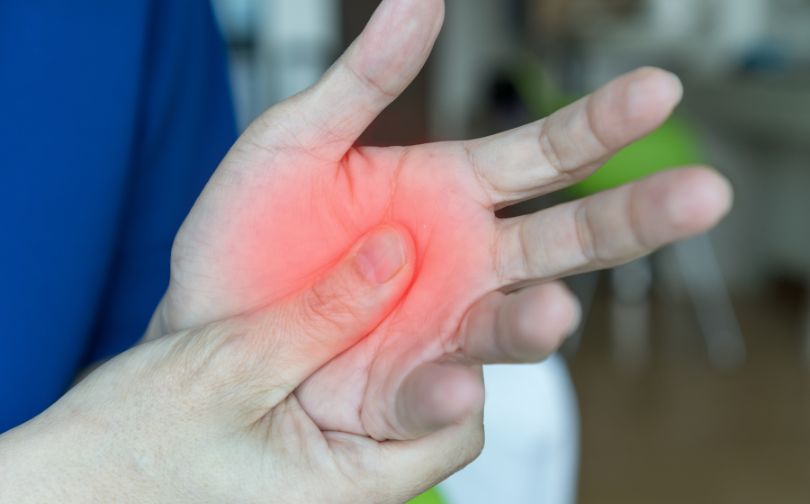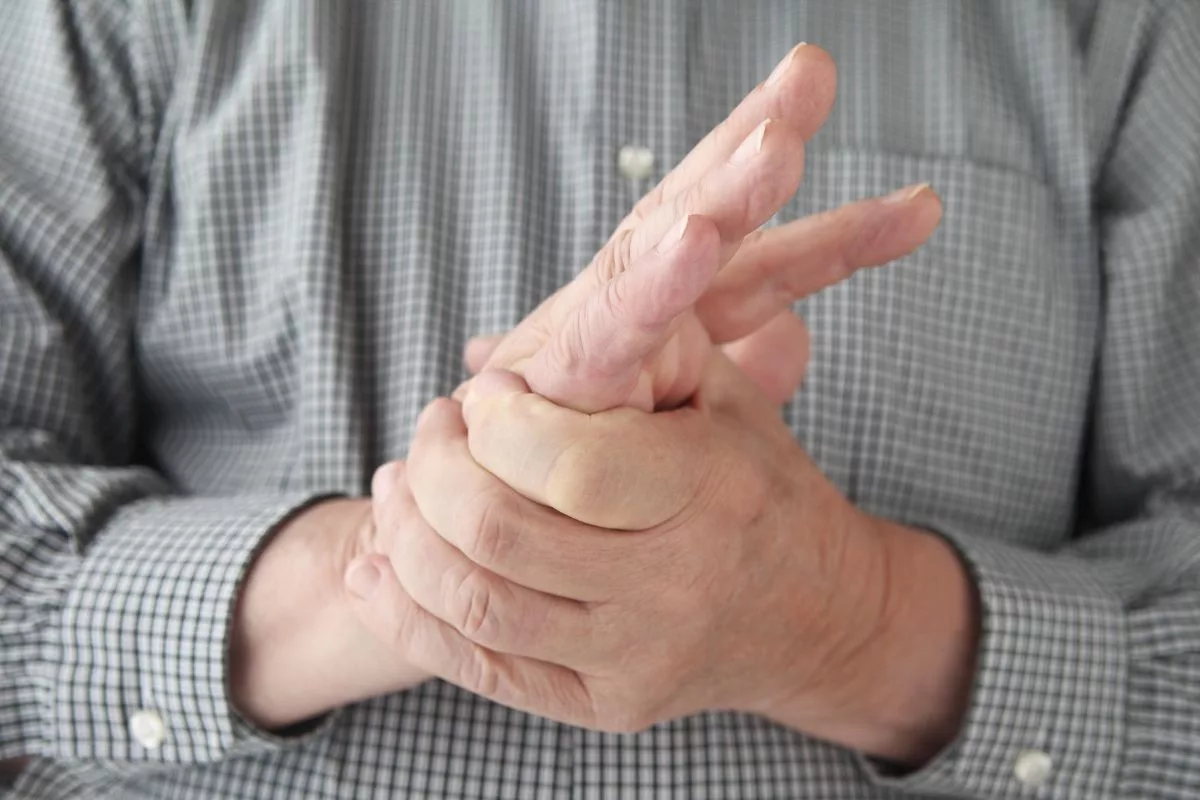This issue is surprisingly common and can stem from various factors, ranging from poor sleeping positions to underlying medical conditions. Studies show that carpal tunnel syndrome, for example, affects nearly 4-10 million Americans and is a frequent cause of nighttime hand tingling.
Possible Causes of Numbness & Tingling In Hands At Night
There are several potential causes of numbness and tingling in hands at night, including:
- Poor sleeping positions: Sleeping with your arms or hands in awkward positions can put pressure on nerves and lead to numbness and tingling sensations.
- Carpal tunnel syndrome: A condition that happens if the median nerve in the wrist is compressed or pinched, causing tingling, pain, and numbness in the hands.
- Peripheral neuropathy: Damage to the nerves outside of the brain and spinal cord can result in numbness and tingling sensations in the hands and feet.
- Raynaud’s disease: A disorder that causes the blood vessels in the hands and feet to narrow and restrict blood flow, resulting in numbness and tingling.
- Vitamin B12 deficiency: Low levels of vitamin B12 can lead to nerve damage and cause numbness and tingling sensations in the hands and feet.
- Diabetes: High blood sugar levels can damage nerves in the body, resulting in numbness and tingling sensations.
- Other health conditions: Certain health conditions, such as thyroid problems, multiple sclerosis, and lupus, can also cause numbness and tingling in the hands at night.
If you are experiencing numbness and tingling in your hands at night, it is important to speak with a healthcare professional to determine the underlying cause and receive appropriate treatment.
How To Relieve Numbness & Tingling In Hands At Night
There are several ways to relieve numbness and tingling in hands at night, depending on the underlying cause of your symptoms. Here are some effective strategies to try:
- Adjust your sleeping position: Avoid sleeping on your arms or with your wrists bent, as this can put pressure on nerves and worsen symptoms. Instead, try sleeping on your back with your arms by your sides or on a pillow.
- Wear a wrist splint: If you have carpal tunnel syndrome, a wrist splint might help keep your wrist in a normal position and alleviate pressure on the affected nerve.
- Stretch and exercise: Gentle stretching and exercise can help improve circulation and reduce nerve compression. Focus on exercises that target the hands, wrists, and forearms, such as wrist curls and finger extensions.
- Apply heat or cold: Applying a warm compress or taking a warm bath can help improve blood flow and reduce muscle tension. Cold therapy, such as applying a cold pack or ice, can also help reduce inflammation and swelling.
- Take over-the-counter pain relievers: If your symptoms are causing discomfort or pain, taking over-the-counter pain relievers such as acetaminophen or ibuprofen can help reduce inflammation and alleviate symptoms.
- Treat underlying health conditions: If your symptoms are caused by an underlying health condition, such as diabetes or peripheral neuropathy, it is important to work with a healthcare professional to manage the condition and prevent further nerve damage.
When to Seek Medical Attention?
Experiencing numbness and tingling in your hands at night can be uncomfortable, and while occasional episodes may not be serious, persistent symptoms could signal an underlying issue. You should seek immediate medical attention if the numbness comes on suddenly, especially if it’s accompanied by severe pain, weakness, or other symptoms like slurred speech or facial drooping, which could indicate a stroke.
Additionally, severe or sudden pain radiating up your arm may suggest a nerve injury or pinched nerve that requires urgent care. If the numbness in your hands occurs frequently over several days or weeks, it’s wise to schedule a doctor’s appointment.
Persistent or worsening symptoms might point to conditions like carpal tunnel syndrome, nerve compression, or even systemic issues such as diabetes or thyroid problems. Additionally, if both hands are affected, or if numbness is accompanied by swelling, muscle weakness, or changes in skin color, a thorough medical evaluation is recommended to determine the cause.
Final Thoughts
Numbness and tingling in hands at night can be a frustrating and uncomfortable experience, but there are many effective strategies to alleviate symptoms and improve quality of life.
Understanding the underlying causes of your symptoms is the first step in finding relief, as treatment options will vary depending on the specific cause.
Whether your symptoms are caused by poor sleeping positions, carpal tunnel syndrome, peripheral neuropathy, or another underlying health condition, there are a variety of strategies you can try to reduce symptoms.
These include adjusting your sleeping position, wearing a wrist splint, stretching and exercising, applying heat or cold, and treating underlying health conditions.
It is important to speak with a healthcare professional if your symptoms persist or worsen, as they can help identify the underlying cause and provide appropriate treatment.
With the right treatment and self-care strategies, it is possible to alleviate symptoms and improve quality of life.
FAQs
Can Poor Sleeping Posture Cause Hand Numbness?
Yes, poor sleeping posture that applies pressure to nerves or restricts blood flow can cause temporary hand numbness. For example, sleeping with hands under your head or torso might compress nerves, leading to tingling or numbness in the hands.
What Other Health Conditions Can Cause Hand Numbness at Night?
Health conditions such as diabetes, cervical spondylosis, ulnar tunnel syndrome, and vitamin deficiencies (like B12) can cause hand numbness at night. These conditions can damage nerves or cause compression, leading to the sensation of numbness or tingling in the hands.
Can Vitamin Deficiencies Cause Hand Numbness at Night?
Yes, vitamin deficiencies, particularly B12, can damage nerves and impair their function. This can result in symptoms like tingling, numbness, or weakness in the hands, especially at night. Supplements or dietary changes may help correct these deficiencies and alleviate symptoms.
How Is Hand Numbness Diagnosed?
To diagnose hand numbness, a healthcare provider may conduct physical exams, nerve conduction studies (electromyography), imaging tests (such as X-rays or MRIs), and blood tests. These tests help identify underlying issues such as nerve compression or systemic conditions that might be causing the numbness.







